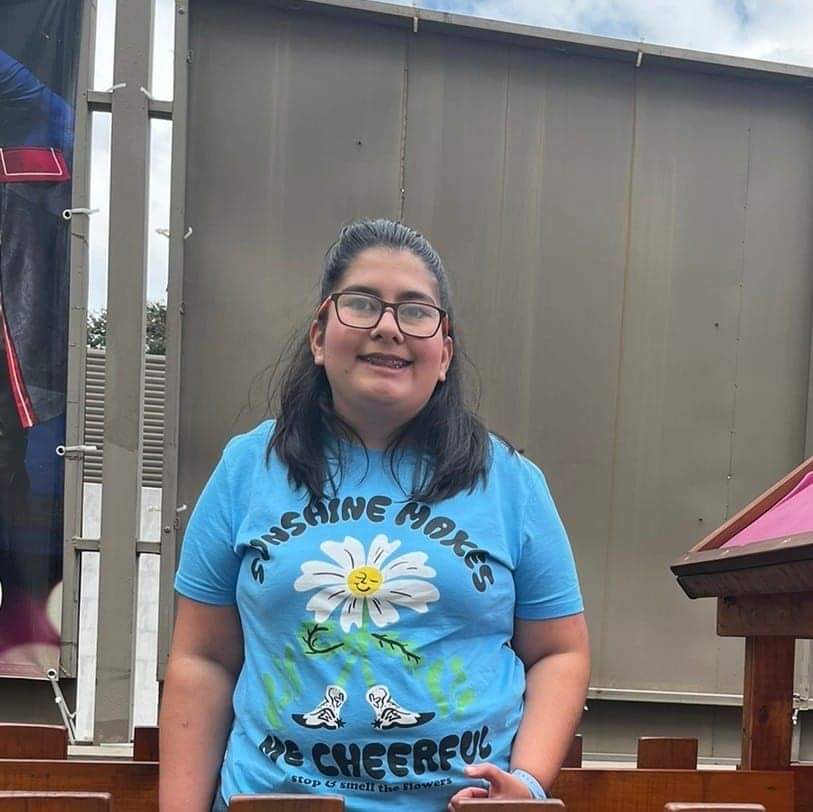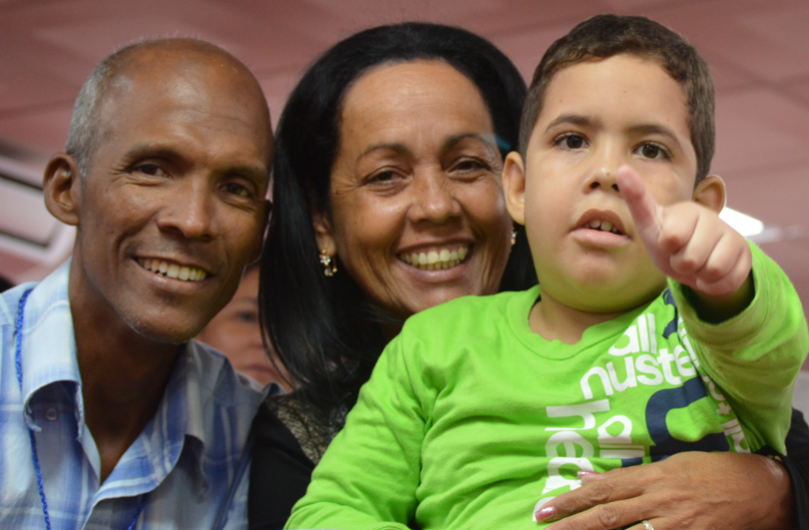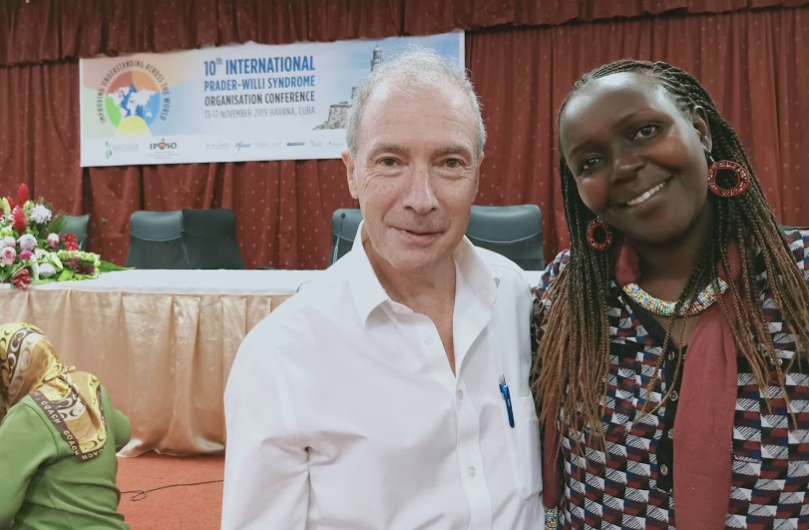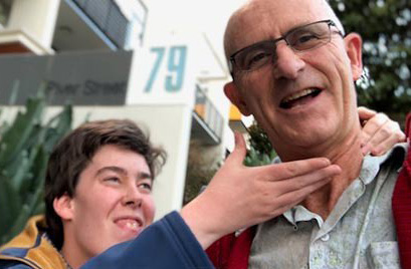After the Diagnosis, Relief and Acceptance
Receiving a diagnosis brings with it a whirlwind of emotions; from fear and worry to profound sadness, despair, and grief. The emotional upheaval can make it difficult to think straight. It can catapult you into survival mode, where the unknown and future are terrifying.
The invisible load of parenting a child with a disability and complex medical needs can be exhausting, isolating, and daunting. Not having answers to the basic question of ‘What?’ makes it difficult in many areas, such as planning for future needs and researching treatment or therapies.
Having a diagnosis can bring relief. Being able to put a name on the multitude of symptoms your child has lived with since birth brings relief. Having a diagnosis allows you to find answers to the questions which were previously unanswerable; What caused this? Did I do something wrong? Know that you did nothing wrong. There is nothing a mother or father could have done, or not done, during pregnancy to have caused PWS.
There should no longer be a need to give lengthy explanations at medical appointments, saying the words ‘Prader-Willi syndrome’ will give you a starting point. It will allow you to be specific about your child and their symptoms. Although you have the diagnosis it will also demand that you are patient with doctors and nurses, social workers, that have not heard about PWS, as it is a rare disease. Most will listen and be interested in a careful explanation. Having a diagnosis allows you to be informed, to be your child’s expert, to have confidence in what you are doing. Always bring written material, to help these doctors understand the diagnosis. There is lots of suitable material available for doctors here on our website.
Trying to access services and filling in forms are all made easier with a diagnosis. It can open up access to services and support at a local level.
Having a diagnosis gives control. You are now armed with the knowledge that will allow you to research treatments and therapies, and find experts and support groups specific to the condition. You can educate yourself, your family, and friends on this syndrome. You can create a support circle. You will realise you are not alone. You will have the option to connect with other people and families who are on a similar path or to connect with PWS specific Associations and Organisations. Relief can be found in the realisation that there is a global community of people, experts working to find a cure to some of the more difficult symptoms of this condition.
Acceptance allows you to move forward. To look to the future and plan how best to navigate it. Accepting a diagnosis can allow you to reclaim control. To be brave enough to ask for help from those that were close.
It can allow you to see and be grateful for the small steps forward that you, your family, and child will have made. No matter where you are in your journey, there are steps you can take to help you reach acceptance a little earlier and perhaps a little less bruised.
Below are five things to implement that can help you arrive at acceptance and relief:
- Talk – Seeking professional counselling services may help you process the trauma of receiving a diagnosis and its impact on your life. Acceptance can only come once it has been processed.
- Stay connected or reconnect with family and friends, to PWS Associations and other parents of children with PWS. Receiving a diagnosis can be isolating. You may feel you have lost connection with family and friends, as they lack an understanding of what you are going through. Connecting with people who understand because they are living it can help.
- Routine – can seem impossible, particularly in the early days, but it’s important to feel you have control, and routine can help achieve this. Start by setting a time where therapy ends for the day, schedule one day per week where you don’t book appointments and allow yourself time to just be a parent.
- Move – its easy to forget to look after yourself. Get active, 30 minutes walking per day will do wonders for the body and mind.
- Breathe – simple but effective. Sit in a chair (or outside in nature), with your feet on the ground, and take 60 mindful slow deep breaths, make the exhale longer than the inhale. If 60 breaths seem too much for you right now, start with 10. What’s important is that you start!
A parent writes:
Our planned daughter was born in 1989. Until we received the diagnosis seven long years of uncertainty determined our daily life. When she was three months old a false diagnosis (spinal cord tumour) obliged us to stay in the hospital for paediatric neurosurgery, with the result that we went home with no answers. Our paediatrician then gave us the advice just to enjoy her early childhood and to go along with the necessary therapies (Vojta therapy, sensorimotor therapy, Feldenkrais method, etc, etc.) When she was three years old she made her first steps… At this time there was just a little knowledge of Prader-Willi syndrome. Finally, the suspicion was confirmed and we had a plan: to look for knowledge and to be more prepared to accept and manage this rare diagnosis. In 1998, with the help of engaged doctors and parents, we founded the PWS Austria Association. The diagnosis of PWS is shocking – but gives you many ways to manage it and achieve the best potential for your child.
A parent writes:
My daughter was born in 1978. I was told she may have Down Syndrome or a muscle-wasting disease, but when tests came back negative, I was sent home with almost no help and told to try to feed my daughter using a bottle (not easy in those days – we ended up feeding her from a spoon). Her official diagnosis at the time was “failure to thrive and developmental delay”. I was told she might catch up. When she began to put on weight for no real reason when she was nearly five years old, a paediatrician finally made the diagnosis – my daughter was only the second child he had seen with the syndrome. The PWSA UK had just started up and I immediately joined. The information I got back was from the USA and I was truly shocked by the prognosis – how could my angelic child turn into such a challenging person when they grew up? I determined that this would not happen and am happy to say that, though there have been a few bumps in the road, my 44 year old daughter is now very happy and settled and is a joy to be with.
Receiving a diagnosis of any disorder, syndrome or condition for your newly born child is a shock and challenge for any parent, especially when the diagnosis is of a rare disease and involves many complications. Today, in the world of PWS we are fortunate to know so much more than 50, even 20 years ago. Treatments and lifestyle support strategies to assist the child’s development are available and research continues.
This article was written by IPWSO’s Famcare Board.
2023

< Back to Information for Families
International Community
IPWSO was established so that PWS associations, families, clinicians and caregivers around the world could exchange information and support and have a united global voice under one umbrella.
Information for Medical Professionals
The latest medical and scientific research and information, plus guides into common medical issues affecting people with PWS.



